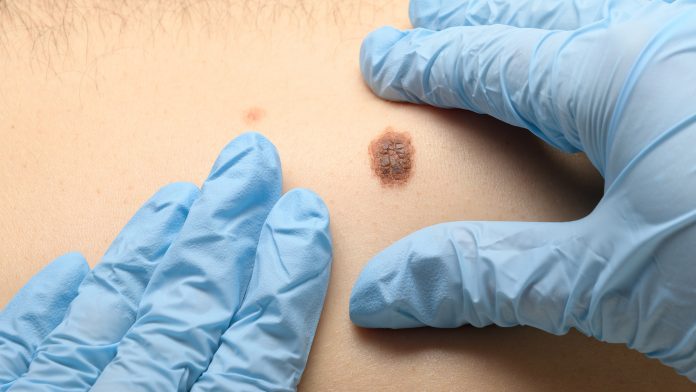
A confirmed link between the gut microbiome and the response to immunotherapy for melanoma cancer has been discovered, in the largest study to date.
Melanoma cancer is a type of skin cancer that can spread to other organs in the body. The most common sign of melanoma cancer is the appearance of a new mole or a change in an existing mole. The most frequently affected areas are the back in males and the legs in females.
Dr Karla Lee, clinical researcher at King’s College London and first author of the study, said: “Preliminary studies on a limited number of patients have suggested that the gut microbiome, as an immune system regulator, plays a role in the response of each patient to cancer immunotherapy, and particularly in the case of melanoma. This new study could have a major impact on oncology and medicine in general.”
The study was published in Nature Medicine and was collaboratively conducted by King’s College London, CIBIO Department of the University of Trento, and European Institute of Oncology in Italy, as well as the University of Groningen in the Netherlands.
This study was funded by the Seerave Foundation.
Gut microbiome health
The microbiome is a set of microorganisms that live in the intestines, which can be altered through dietary changes, probiotics, and faecal transplantation. Changing certain habits can modify the microbiome’s action on the immune system.
Therefore, understanding the characteristics of the microbiome can enable clinicians to alter a patient’s microbiome accordingly before starting melanoma cancer treatment. Finding new therapies and strategies is vital for melanoma cancer as less than 50% of patients respond positively to immunotherapy.
The study amassed the largest cohort of patients with melanoma cancer, and samples of their gut microbiome were taken from five clinical centres in the UK, the Netherlands and Spain.
Researchers carried out a large-scale metagenomic study – sequencing of the gut microbiome – to investigate whether there is an association between the composition and function of the gut microbiome and response to immunotherapy.
Melanoma cancer and personalised treatment
Results confirmed a complex association as it involves different bacterial species in different patient cohorts. The presence of three types of bacteria, Bifidobacterium pseudocatenulatum, Roseburia spp. and Akkermansia muciniphila, seemed to be associated with a better immune system response.
Furthermore, the microbiome is strongly influenced by factors including patient constitution, use of proton pump inhibitors and diet that should be considered in future longitudinal studies.
Co-author Professor Tim Spector from King’s College London said: “This study shows the chances of survival based on healthy microbes nearly doubled between subgroups. The ultimate goal is to identify which specific features of the microbiome are directly influencing the clinical benefits of immunotherapy to exploit these features in new personalised approaches to support cancer immunotherapy. But in the meantime, this study highlights the potential impact of good diet and gut health on chances of survival in patients undergoing immunotherapy.”
Co-author Professor Nicola Segata from the University of Trento concluded: “Our study shows that studying the microbiome is important to improve and personalise immunotherapy treatments for melanoma cancer.
“However, it also suggests that because of the person-to-person variability of the gut microbiome, even larger studies must be carried out to understand the specific gut microbial features that are more likely to lead to a positive response to immunotherapy.”






















